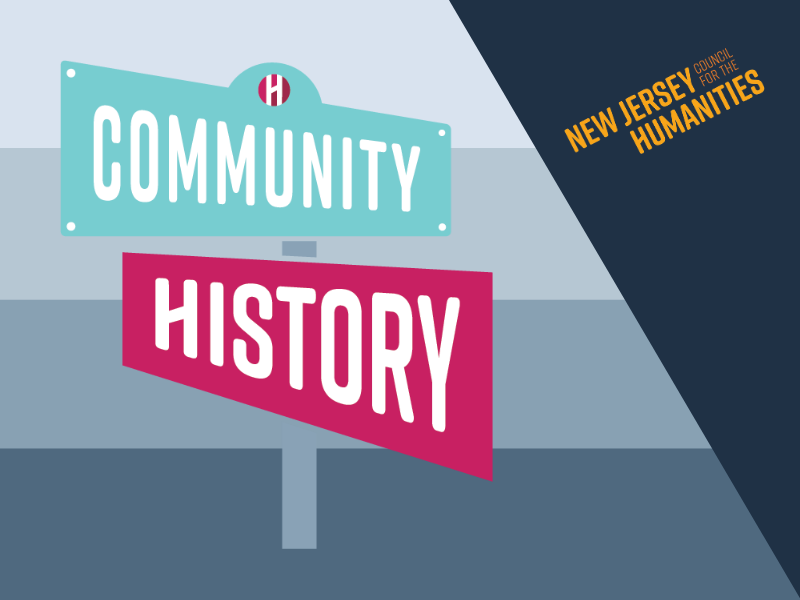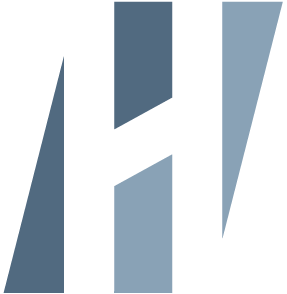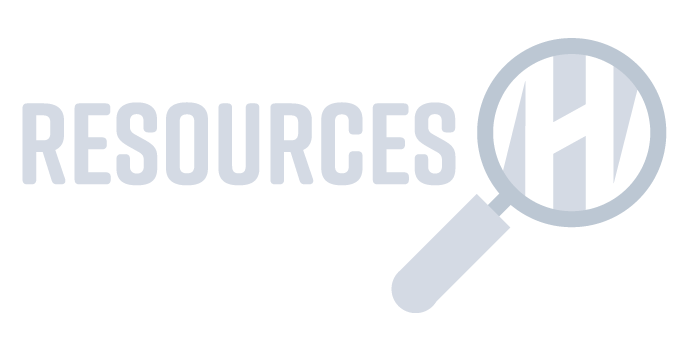The Community History program will allow organizations to learn the ins and outs of public history while developing their own projects with their local communities. Participants will receive instruction on public history best practices, develop projects in a cohort environment that encourages collaboration, and receive funding from NJCH to launch projects in their communities. This educational program is for organizations that have a great interest in exploring their community’s history but do not have professional historians on staff to guide their process.
Community History participants will work closely with their communities to learn about, engage with, and share untold and underrepresented stories from those communities. The ideal Community History participant will see value in incorporating history into their organization’s work. Some examples of questions you might be considering:
- How can our organization engage with community histories and share these histories with our community members?
- How can we preserve, interpret, and amplify our local histories?
- How can we move beyond the traditional narratives about our local histories to co-create narratives that reflect our community’s experiences and values?
- How can learning about our community’s history help us to understand our present circumstances and look to the future?
What is Public History?
The National Council on Public History defines public history as “the many and diverse ways in which history is put to work in the world.” Public history seeks to take history out of classrooms and textbooks and into communities. Balancing rigorous historical research with reflections and contributions from community members, public history seeks to make history a collaborative process and diversify the voices that are present in our historical narratives. It can help neighbors engage more deeply with each other to investigate how the past influences the present, resulting in a deeper understanding of ourselves and the world around us.
Program Components
Community History will consist of eight virtual learning sessions taking place on Wednesday afternoons between June and September. Each meeting will include instruction on public history practices and time to work on public history projects in a collaborative environment.
Between sessions, each program participant will work closely with community members back home to develop and build a history project. Projects might take many different forms; thinking about what form the project takes will be an important part of the process for all participants. At the end of the program, all participants will share their projects in a showcase to take place in October 2021.
Organizations accepted into the Community History program are required to identify 2 or 3 representatives that are able to participate in all learning session and program activities. Those participants will also act as primary community contacts. Each organization will receive an honorarium of $1,000 to defray the cost of participation as well as a grant of $3,000 to support the development and implementation of their project.
Learning Sessions & Dates
June 2, 2021
What is community history?
June 9, 2021
Shared Authority
June 16, 2021
Humanities Program Models
June 23, 2021
Project Planning and Evaluation, Part 1
July 21, 2021
Evaluation, Part 2
August 4, 2021
Outreach & Marketing
September 8, 2021
Grant Writing & Fundraising
September 22, 2021
Future Planning
October 2021
Showcase
Program Staff
Community History will be led by Kristin O’Brassill-Kulfan, Instructor of Public History, Rutgers University and Gigi Naglak, Director of Programs, New Jersey Council for the Humanities.
Kristin O’Brassill-Kulfan is a public historian and scholar of early American social history at Rutgers University. She coordinates the Public History Program at Rutgers, including the Certificate in Public History and Public History Internship, and is also an Associate Graduate Faculty Member in the Cultural Heritage and Preservation Studies Program. O’Brassill-Kulfan holds a PhD in History from the University of Leicester and an MA in Modern History from Queens University Belfast. She consults regularly on public history projects, curating exhibits, managing archival collections, and creating inclusive public programming.
Gigi Naglak is NJCH’s Director of Programs, where she oversees all of the council’s public humanities program offerings. Prior to coming to NJCH in 2016, Gigi spent more than a decade in museum education, leading education and public engagement initiatives for the Science History Institute and American Philosophical Society most recently. She is also a theatre producer and performer. Gigi has a BA in history and theatre from Drew University and an MA in Performance Studies from King’s College London and the Royal Academy of Dramatic Art.
Other public history specialists and practitioners will be brought in throughout the course to talk about their experience creating community-based projects and to offer guidance to program participants.
Eligibility
Nonprofit organizations and unincorporated community groups are eligible to apply to be part of Community History. Organizations or groups that are interested in incorporating history into their programming but have little experience and no professional historians on staff to do so are ideal applicants. Any applicant must be willing to work collaboratively with community members to develop and implement a public history project. The most competitive applicants will demonstrate strong personal or organizational ties to the community whose history they hope to explore and a commitment to raising untold stories or underrepresented points of view, leading to a fuller and more nuanced understanding of the past.
Not eligible:
- For-profit organizations or businesses.
- Colleges or universities.
- K-12 educational institutions.
- Professional history institutions.
- Individuals.
Community History is a process-driven program that combines instruction in public history with development of a community-engaged history project. Those who wish to learn more about how public history works and have either not begun or are early in the process of developing a project would be a good fit for this program.
Timeline & Important Dates
Application deadline: April 30, 2021
Decisions announced: by May 12, 2021
Participant meetings: weeks of May 17 and May 24, 2021
Coursework and project development: June-October 2021
Project showcase: October 2021
Information Session
NJCH is hosting an hour-long webinar, designed to help potential participants learn more about public history concepts and the application process for the NJCH Community History program.
Thursday, April 15, 2021, 12:00pm to 1:00pm. Click here to register.
Apply
NJCH uses an online application system called Foundant. If you have applied for an NJCH grant or award since September 2020, you probably already have an account. Log in using your email address and password, and Community History will be there as an open opportunity. If you do not yet have a Foundant account, you will need to register and fill in your basic institutional information before you can access the application itself.
To preview the application questions, click here.
Sample Projects
Public history projects can take on many different forms, from digital collections (oral histories, documents, photos) to documentaries to exhibitions to public discussions and so much more. A primary objective of the Community History program will be to help you figure out the most effective way to share the history you’ve discovered with the public through the creation of a project. Here are a few examples of public history projects that have taken place in New Jersey, some large and some small: Highland Park African American History Project,Vietnamese Boat People,
Queer Newark Oral History Project, and Latino Oral History: Justice.
Questions?
If you have any questions about your eligibility for this program or program components, please don’t hesitate to contact us.



